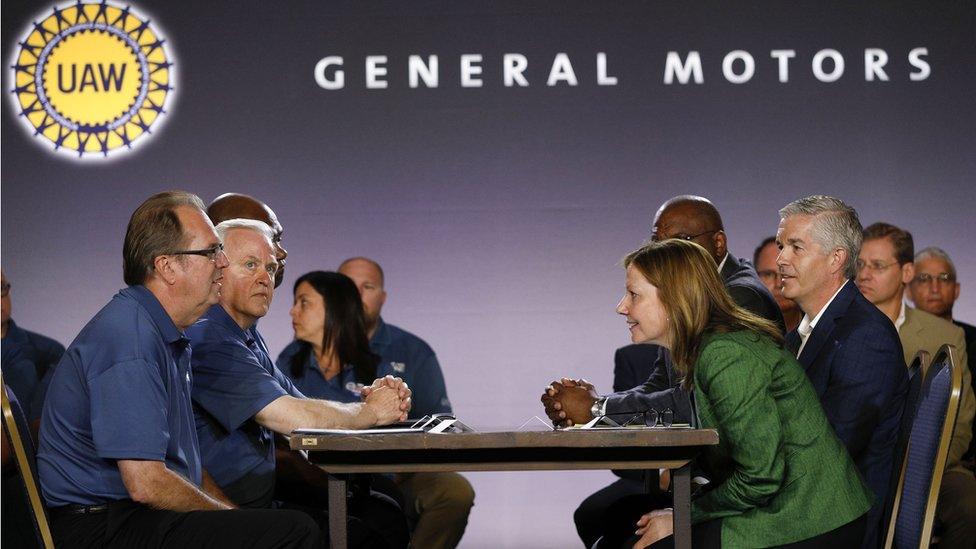GM strike ends after UAW workers approve deal
- Published

GM chief Mary Barra (R) reached a deal with leaders of the United Auto Workers union
The United Auto Workers (UAW) union has called an end to its strike with General Motors after a majority of members approved a new contract, external.
The strike had halted work at US factories for six weeks, costing the carmaker an estimated $2bn (£1.5bn).
The new four-year agreement covers almost 50,000 workers, providing pay increases, bonuses and a path to permanent jobs for temporary staff.
The strike was the longest in the car industry since 1970.
UAW vice-president Terry Dittes, who worked on the negotiations, said the walkout had been critical to the gains.
"We are all so incredibly proud of UAW-GM members who captured the hearts and minds of a nation," he said.

Nearly 50,000 GM workers have been on strike for a month
The strike started on 16 September, after the union's previous four-year contract with GM expired. It was the first stoppage since 2007, when there was a two-day walkout.
The contract, which won 57% of the UAW member vote, provides for 3% wage increases, maintains the current health benefits and removes a cap on profit-sharing with employees.
It also includes a signing bonus and creates a "clear path" to permanent staff status for temporary employees who have worked for the company for three years.
In a statement, external, General Motors, which earned $8bn in profit last year, called the package "world-class". It also noted the firm's planned to invest $7.7bn in the US.
"GM is proud to provide good-paying jobs to tens of thousands of employees in America and to grow our substantial investment in the US," chief executive Mary Barra said.
The union had also been fighting to stop GM from shutting US plants but those closures will go ahead as announced.
GM has agreed to invest in upgrades in the fourth, located in Detroit.
GM has said the cuts are a necessary response to slowing car sales, the industry shift to electric and autonomous vehicles and other market changes.
The UAW said it would negotiate next with Ford.
- Published13 October 2019

- Published16 October 2019
